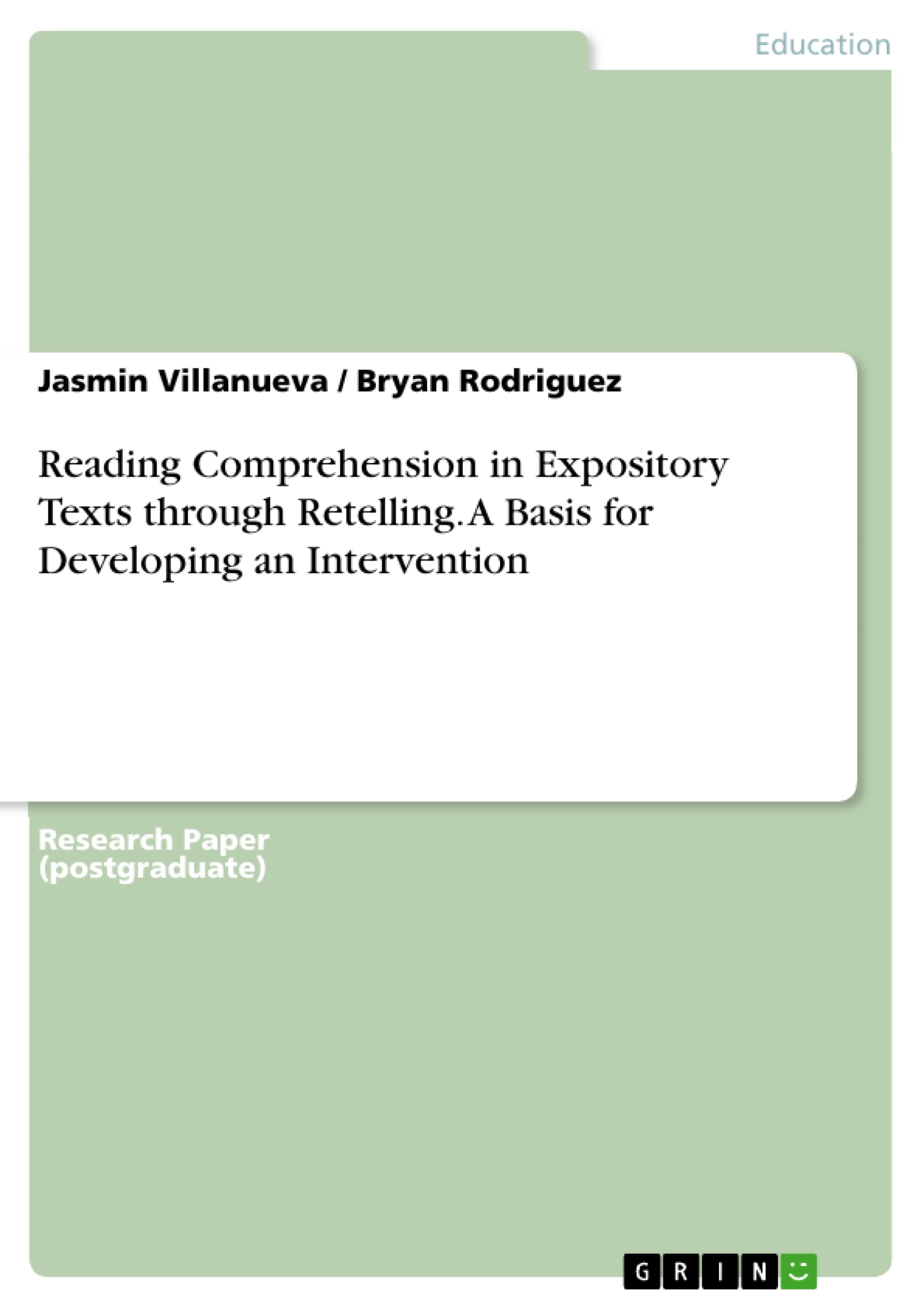This descriptive-correlational study aimed to assess the level of reading comprehension in expository text of Grade 6 pupils from selected public school sin Angeles Meta-synthesis was used to integrate the qualitative observations of 3 raters on the retellings of the respondents. The expository text used in this study was entitled Friendship, a suggested reading for intermediate students. The text was 490 words long, with average sentence length of 12,8, had a Flesch Reading Ease value of 77.5, and a computed Flesch-Kincaid Grade Level of 6.1.
Most of the pupils attained a rating of developing for the content (40.57%), structure (61.71%), and vocabulary (46.86%) of their retelling. A small percentage of the respondents attained an exceptional rating on content (13.14%), structure (4.57%), and vocabulary (0.57%). Majority of the pupils (47.43%) were classified as approaching proficiency (80-84) in terms of their Grade 6 English subject grade. Only 1.71% of the pupils belonged to the advanced category. The reading comprehension of the pupils in expository texts has a significant relationship with their grades in their English subject. This means that their reading comprehension in expository text influences their performance in their English subject class.
Results revealed that pupils had difficulty in comprehending expository texts as revealed by their low rating in the content, structure and vocabulary of their retelling. Further, the academic performance of the pupils in their English subject is affected by their reading comprehension.
Table of Contents
- Abstract
- Introduction
- Methodology
- Research Instrument
- Research Procedure
- Statistical Treatment of Data
- Results
- Discussion
- References
Objectives and Key Themes
This study investigates the level of reading comprehension in expository texts among Grade 6 pupils, employing the retelling method as an assessment tool. The research explores the relationship between reading comprehension and academic performance in English, aiming to develop intervention materials for students struggling with comprehension.
- Assessing reading comprehension in expository texts through the retelling method.
- Analyzing the relationship between reading comprehension and academic performance in English.
- Identifying students' difficulties in understanding expository texts.
- Developing intervention materials based on the findings of the study.
- Exploring the impact of reading comprehension on academic achievement.
Chapter Summaries
- Abstract: This section provides a brief overview of the study, including its objectives, methodology, and key findings. It highlights the use of the retelling method to assess reading comprehension in expository texts and the relationship between reading comprehension and academic performance in English.
- Introduction: This chapter emphasizes the importance of reading comprehension as a higher-order thinking skill, discussing the role of vocabulary, sentence structure, and text flow in facilitating understanding. It explores the complexities of reading comprehension and the strategies employed by skilled readers. The chapter also discusses the prevalence of expository texts in the curriculum and the potential impact of poor reading comprehension on academic achievement.
- Methodology: This section outlines the research design, which uses a descriptive-correlational approach to assess reading comprehension and analyze its relationship with academic performance in English. The chapter details the research instrument, the retelling method, the research procedure, and the statistical treatment of data. It also discusses the use of meta-synthesis to develop reading interventions.
Keywords
The study focuses on the following key concepts: reading comprehension, expository texts, retelling method, academic performance, English subject, intervention materials, and meta-synthesis.
- Quote paper
- Jasmin Villanueva (Author), Bryan Rodriguez (Author), 2015, Reading Comprehension in Expository Texts through Retelling. A Basis for Developing an Intervention, Munich, GRIN Verlag, https://www.grin.com/document/311581




